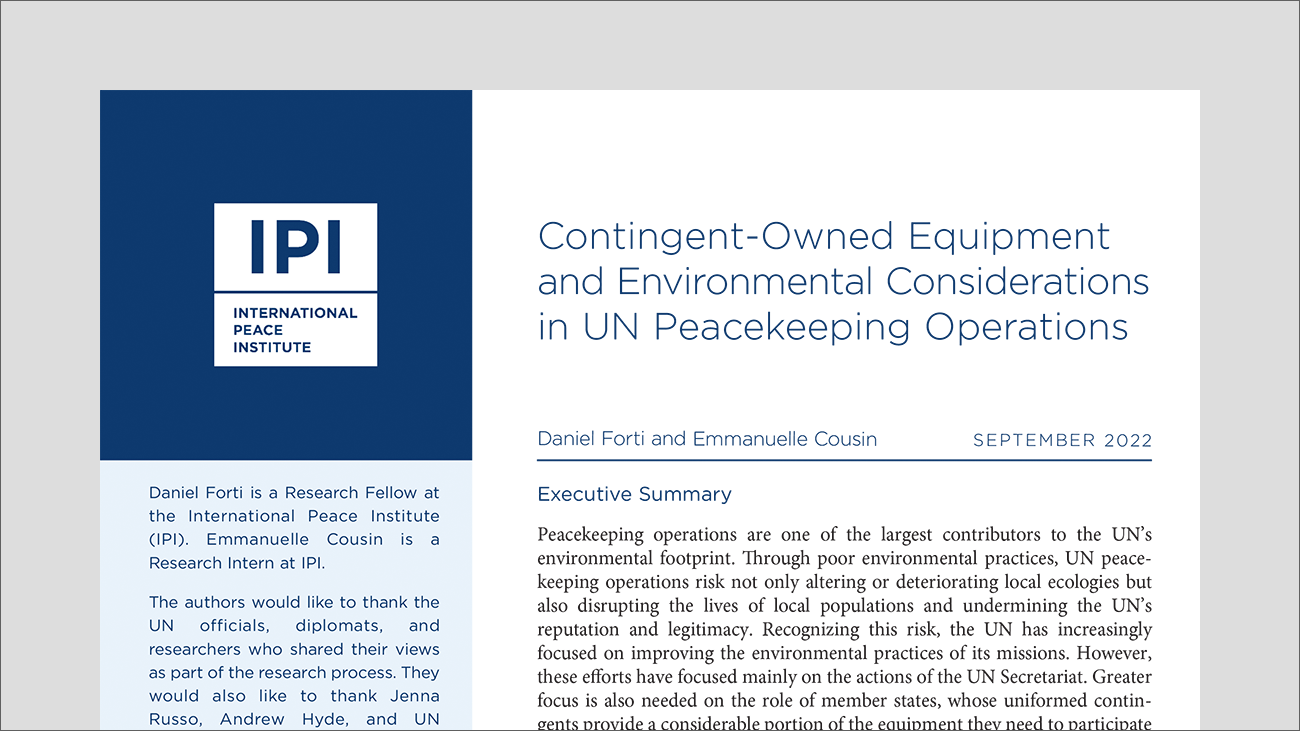
Peacekeeping operations are among the largest contributors to the UN’s environmental footprint, as well as the biggest potential vectors for pollution. Without strong environmental standards, these operations risk not just damaging local environments, but also negatively impacting the health and safety of local populations and compromising the UN’s reputation and legitimacy. The UN has taken steps to improve its missions’ environmental practices, but these efforts have largely focused on the actions of the UN Secretariat and not those of member states. Less attention has been paid to the role of member states, which supply a considerable portion of the equipment used in peacekeeping operations.
This issue brief analyzes how environmental considerations have emerged in discussions about UN peacekeeping operations and the financial incentives governing contingent-owned equipment (COE). It provides an overview of UN peacekeeping missions’ environmental footprint and the policies that have emerged in response. It also examines the evolution of environmental issues in the UN General Assembly’s COE Working Group, the dynamics that affect how member states engage in these negotiations, and current best practices for improving environmental standards for COE.
The paper concludes by suggesting important points member states should consider in future discussions surrounding the COE framework:
- Member states will need to expand their focus beyond renewable energy to consider the myriad of ways in which their deployments impact the environment, including waste and pollution.
- Adjustments to the COE framework hinge on progress both by member states and by the UN Secretariat.
- Member states would benefit from a dedicated forum for sharing data and best practices on environmentally friendly equipment.
- The pace of climate change-induced environmental degradation is accelerating, with an especially profound impact on conflict-affected countries. Reducing missions’ environmental footprints is necessary not just to mitigate environmental degradation but also to improve their ability to implement their mandates.







